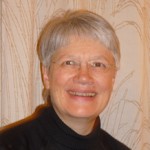 In her keynote address to the Society for the Scientific Study of Religion in Milwaukee last October, Grace Davie eruditely portrayed the changing perceptions of ‘religion’ over the last fifty years. In the 1960s, most sociologists consciously or unconsciously bought into idea of the ‘death of god’ – religion became effectively invisible to academia. Throughout the 1980s and 90s, a number of events – most notably the ‘Satanic Verses’ controversy – dramatically increased the ‘visibility’ of religion: it became a political problem. Now, in the 21st century, religion is increasingly being construed by politicians, educators, the media etc, as a useful resource to be exploited. These public perceptions are but one facet of the way in which ‘religion’ can be understood as ‘changing’.
In her keynote address to the Society for the Scientific Study of Religion in Milwaukee last October, Grace Davie eruditely portrayed the changing perceptions of ‘religion’ over the last fifty years. In the 1960s, most sociologists consciously or unconsciously bought into idea of the ‘death of god’ – religion became effectively invisible to academia. Throughout the 1980s and 90s, a number of events – most notably the ‘Satanic Verses’ controversy – dramatically increased the ‘visibility’ of religion: it became a political problem. Now, in the 21st century, religion is increasingly being construed by politicians, educators, the media etc, as a useful resource to be exploited. These public perceptions are but one facet of the way in which ‘religion’ can be understood as ‘changing’.
In this interview with Chris, Professor Davie discusses the place of religion in modern Europe, paying particular attention to the place of the United Kingdom within the European context. In an effort to combat the caricatures that typify media accounts of religion in the contemporary world, Davie discusses the changing nature of religion, in academia and in the public square, and considers the impact of the arrival of new cultures into Europe, whilst reflecting on secular reactions to these.
Three freely accessible articles by Prof. Davie which should be of interest to our listeners are “Thinking Sociologically about Religion: A Step Change in the Debate?“, published by The ARDA in 2011, “Is Europe an Exceptional Case?” from The Hedgehog Review (2006), and “Working Comparatively” from the University of Kent’s Research Methods for the Study of Religion website.
This interview was recorded in October 2011 in Milwaukee, WI at the annual meeting of the Society for the Scientific Study of Religion.







